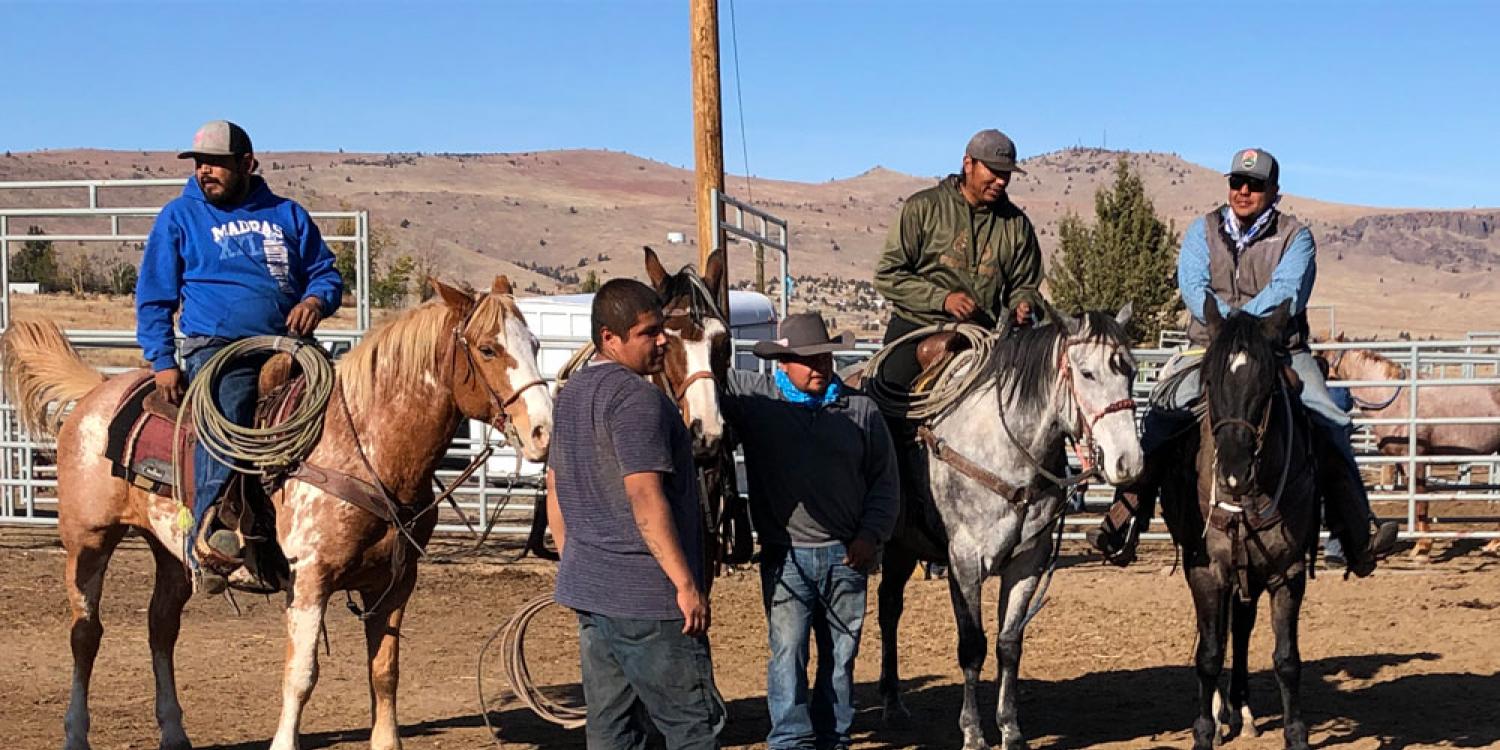
Overpopulation of wild horses on Warm Springs tribal lands causes damage to the native ecosystem, primarily through overgrazing which contributes to increases in annual weeds that fuel more frequent wildfires. Additional problems include compacted soil that becomes hard and unable to produce plants, damage to wetland areas adjacent to rivers and streams, and reduction of native plants and animals.
To help reduce the wild horse population, the Oregon State University Extension Service offers free sterilization clinics to the Confederated Tribes of Warm Springs Range and Agriculture Department, which gathers the wild horses several times a year.
Sterilization is costly. In response, for the last five years, OSU Extension has worked with the U.S. Department of Agriculture’s Animal Plant Health Inspection Service (USDA-APHIS) to conduct the clinics. The Confederated Tribes of Warm Springs provides the facility and round-up team and OSU Extension and the OSU Carlson College of Veterinary Medicine provide medications, a team of veterinary students and licensed veterinarians to do the surgeries.
More than 110 stallions have been sterilized, potentially resulting in hundreds of horses being eliminated from the tribal lands. Sterilizations normally cost $250-$500, depending on whether the veterinarian has to travel, or the horse is brought to them. Using $250 as the rate, the tribe has saved a minimum of $27,500 – and most likely more – in veterinarian services and fees and services.